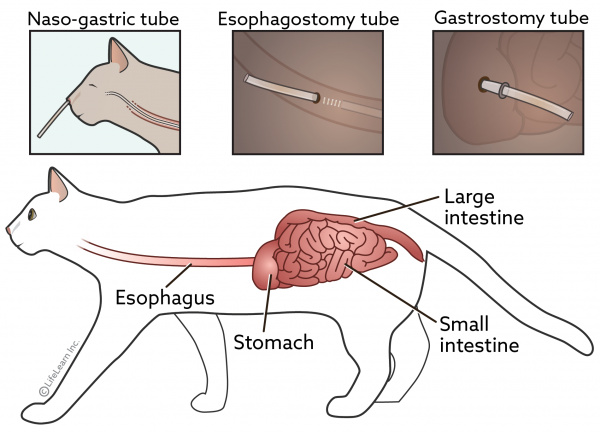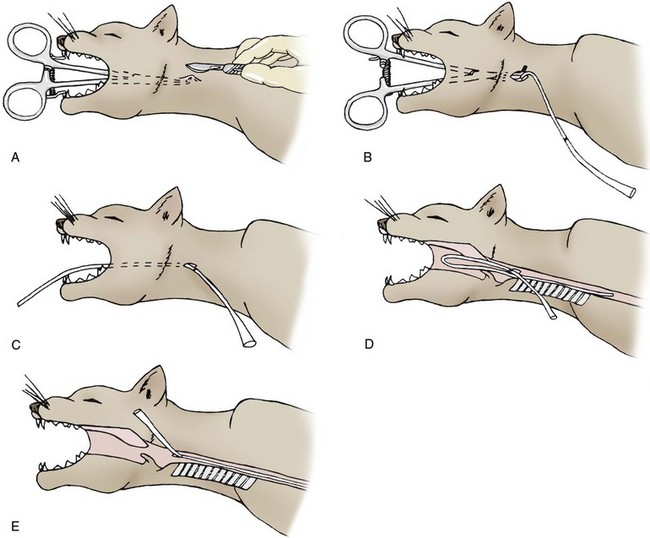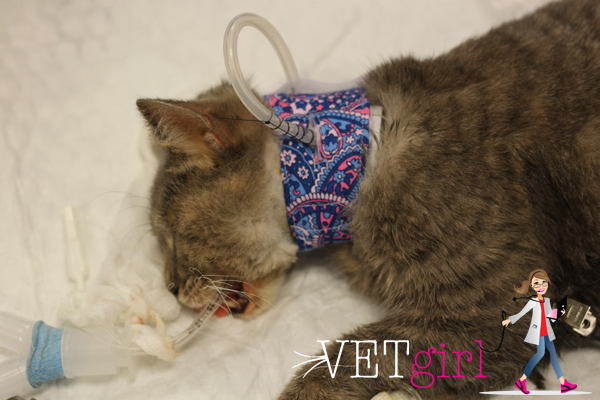The real beauty of having a feeding tube in place is that you can also administer medications through the tube rather than having to struggle to get your cat to take them.
Cat feeding tube problems.
It is stitched in at her neck incision and held in place with tape as well.
The tube will need to be flushed with water after each feeding and the area around the end of the tube that sticks out of your cat s neck needs to be kept clean.
Why is tube feeding necessary.
In some cases a cat is unwilling or unable to eat on its own.
Causes of lack of appetite internal organ diseases like hepatic lipidosis infections felv and fevers along with anatomical problems like a broken jaw can all prevent a cat from taking in adequate nutrition.
If any food or water comes up the tube has slipped.
To check if it is in the right place insert an empty syringe and pull the plunger out.
Feeding tubes save lives and are not used as often as they should be for anorexic patients.
However feeding tubes should not necessarily be viewed as a doom and gloom overly heroic measure.
Unfortunately when most people hear the term feeding tube they tend to panic feeling like this is the end of the road for their cat.
It s important a cat continues to take in nutrition in order to speed healing and to prevent complications due to organ shutdown.
A feeding tube is used as a means of getting nutrition into a cat that needs to eat but has either lost their appetite such as after major surgery or has physical difficulty eating such as a fractured jaw.
Inspect the tube before you feed the cat.
Feeding tube dismissal.
Tube feeding potential problems complications problem symptoms immediate action possible causes prevention aspiration heartburn or vomiting coughing choking difficulty breathing and or shortness of breath with or without chest pain loud wet breath sounds rapid heart rate.
Your cat has just had a feeding tube placed in the side of their neck.
Make sure that the tube hasn t moved or come out of the stomach.
Tube feeding is an alternative way of providing nutrition to a cat that is suffering from anorexia lack or loss of appetite or has some anatomical or surgical condition that prevents it from eating normally.
The feeding tube is a temporary solution which could be required anywhere from two to six weeks or until she starts to eat regular food again.










